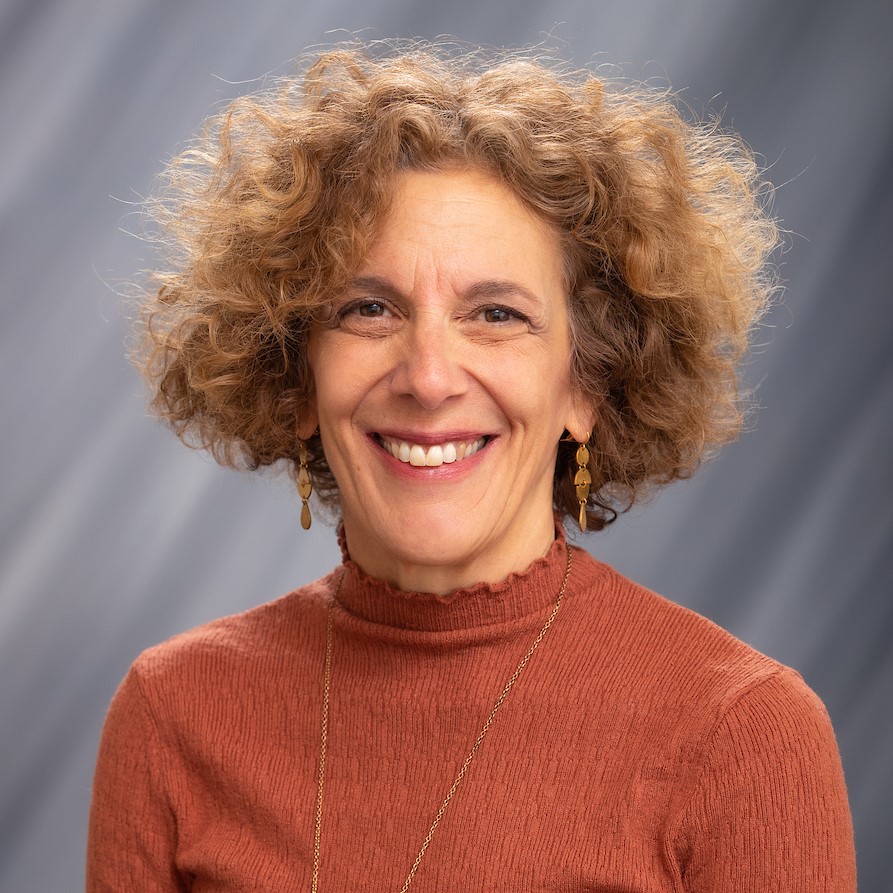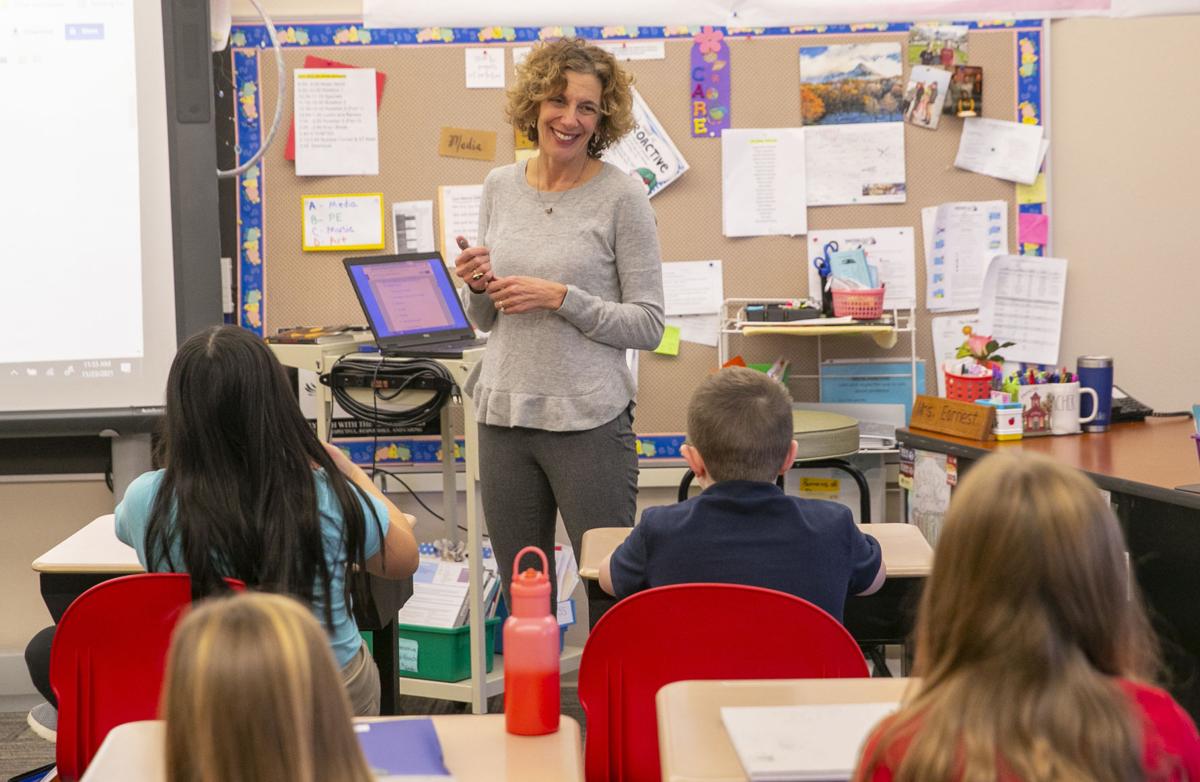Perspectives: Forgiveness education

Among the areas of scholarly study by Suzanne Freedman, PhD, professor, Educational Psychology, Foundations and Leadership Studies, is a focus on the psychology of interpersonal forgiveness, forgiveness education and the role of anger in forgiveness education. In this Perspective, she shares her thoughts on the importance of forgiveness education.
The importance and benefit of educating elementary school children about forgiveness
How children navigate their emotional world is critical to their life long success.
-- Susan David Emotional Agility (2016)
What does forgiveness mean to you?
I often begin my presentations on interpersonal forgiveness by asking the audience to think of a situation in which they have needed to forgive someone, someone has needed to forgive them, or they have needed to forgive themselves. I ask them to reflect on what the process was like for them, whether they were able to forgive, and what the consequences were of forgiving or being forgiven.
Many participants comment on how they were never taught about forgiveness as a process or that it was okay to feel angry after experiencing a deep hurt or conflict. Although we hear a lot about the need to forgive from society, specifically teachers, parents, and/or religious leaders, we are rarely given information about how to forgive or what forgiveness looks like. Messages of forgiveness are passed down to children without any real education or discussion about the process of forgiveness and benefits of forgiving.
What is forgiveness education?
Forgiveness education is one form of social-emotional learning that has proven effective in reducing anger and increasing well-being in children and adolescents (Rapp et al, 2022; Freedman & Chen, 2023). Forgiveness education includes content on what forgiveness is and is not, how to forgive and the benefits of forgiveness. As humans, we all make mistakes and, at some point, during our lifetime, we will either need forgiveness from someone or be in the position to offer forgiveness to another person. Learning about forgiveness gives students the knowledge and power needed to ask for forgiveness or grant it.
Benefits of forgiveness education
Research demonstrates that increases in forgiveness are associated with increases in empathy, compassion and perspective taking (McCullough et al., 1997; Yuan, Liu, & Genden, 2022). Learning about forgiveness during childhood and adolescence can lead to improved psychological well-being, and improvement in academics and relationships (Enright et al., 2007; Freedman, 2018; Rapp, Wang Xu, & Enright, 2022). Research illustrates that children’s anger is increasing, along with anxiety and depression (Brackett, 2019). Angry and hurt children who cannot understand and express their feelings often inflict anger upon others or deny it until it erupts (Blake & Hamrin, 2007). Practicing the virtue of forgiveness rewards the forgiver, the forgiven, and society at large.
In a recent study evaluating forgiveness education that I conducted with my University of Northern Iowa colleague Eva Chen and published in 2023, two classes of fifth-graders at Lowell Elementary School, in Waterloo, Iowa, received a 10-week forgiveness education curriculum that I developed and then expanded and published in 2021 with Professor Robert Enright. The curriculum focuses on children's literature to illustrate forgiveness and related concepts. Educating these students about the psychological process of forgiveness included teaching them healthy ways to express anger and other feelings, understand the perspective of others and practice empathy and kindness.
Results from this study illustrate that students showed increased forgiveness toward a specific offender and increased knowledge about forgiveness after receiving the education. Students’ verbal reports also illustrate that they enjoyed and benefited from this specific curriculum using children’s literature. As reported by one student:
“I’ve learned that anger is a natural feeling. It takes time to forgive. You don’t have to forgive right away. They don’t always apologize. Forgiveness is one step closer to healing. When you forgive you can put it in the past. You don’t have to be friends with the offender after. Apologies make forgiving easier. Forgiveness is made by the person who was hurt. If you want revenge, then you haven’t forgiven in your heart.”
What is forgiveness?
Forgiveness is more complicated than people realize. It may not be the same notion of forgiveness preached by one’s parents or religious leader. It goes beyond just saying the words, “I’m sorry” or “I forgive you.”
One popular definition of forgiveness states: “When unjustly hurt by another, we forgive when we overcome the resentment toward the offender, not by denying our right to the resentment, but instead by trying to offer the wrongdoer compassion, benevolence and love; as we give these, we as forgivers realize that the offender does not necessarily have a right to such gifts.” (Enright et al., 1991).
What’s important to note is that one has a right to feel pain, hurt, and anger when hurt. When we forgive we give up our anger and desire for revenge and show mercy to the offender. Forgiveness does not mean forgetting, excusing, condoning, pardoning, or automatic reconciliation, and it is not mutually exclusive with justice.
A school psychology graduate student who took my interpersonal forgiveness class learned that forgiving does not mean that one is weak and powerless. Specifically, she wrote,
“Another insight that I took away from these readings was the power you give to yourself when you choose to forgive. This concept is counterintuitive since I grew up believing that the power was held by the one who showed the anger. Those who hold resentment are typically only hurting themselves. Forgiving does not mean you are giving up power. By forgiving, you can emPOWER yourself to move forward from the anger and resentment to be a better version of yourself.” (Shyanne Sporrer, 2021).
Many students in my college class on interpersonal forgiveness discuss how they wish they had the opportunity to learn about forgiveness at a younger age. Messages from society often focus on “an eye for an eye” or alternately, “to get over interpersonal hurt quickly with no discussion of one’s pain and hurt feelings.”
In addition, offenders are often forced to apologize before they have had time to reflect upon their actions, why they were hurtful and/or feel truly remorseful. Children who have hurt others need to be given time to reflect on their harmful actions and then be encouraged to apologize when they feel truly remorseful. Children who have been hurt benefit when they know that forgiveness is an option, and are able to forgive on their own timeline, when they feel ready and not just because the offender offered a forced apology.
Why is forgiveness education and research on forgiveness important?
I am often asked “why forgive,” and my response is always the same, “What’s the alternative?” Although forgiveness cannot undo the injury or damage caused by the injury, it allows us to move forward in our lives free from the negative effects of all consuming anger, hatred and resentment. It offers us a way to heal and hope for the future, while still acknowledging that what happened to us was wrong, unfair and extremely hurtful. As stated by an incest survivor in my dissertation study 10 years post intervention:
“It (the study) changed my life. “It changed what I thought forgiveness meant. I realized it wasn’t pardoning someone but relinquishing the anger and how it had controlled me.”
Educating students about forgiveness and related concepts when they are young serves as a form of prevention for many of the negative consequences that result from holding onto anger. Unless students learn about forgiveness and see it modeled in different situations, it will be difficult for them to choose to forgive and develop a forgiving disposition.
Forgiveness education teaches students to recognize the inherent worth of each person. Research on forgiveness, like our 2023 study, is important. It introduces educators and counselors to the idea of forgiveness education as a form of social-emotional learning that helps to decrease anger and increase well-being in students. There are many misconceptions of what forgiveness is, is not, and what forgiveness and forgiveness education looks like. The prevention of emotional and physical health problems, including long-standing anger, is critical for the overall well-being and success of both individuals and society.

